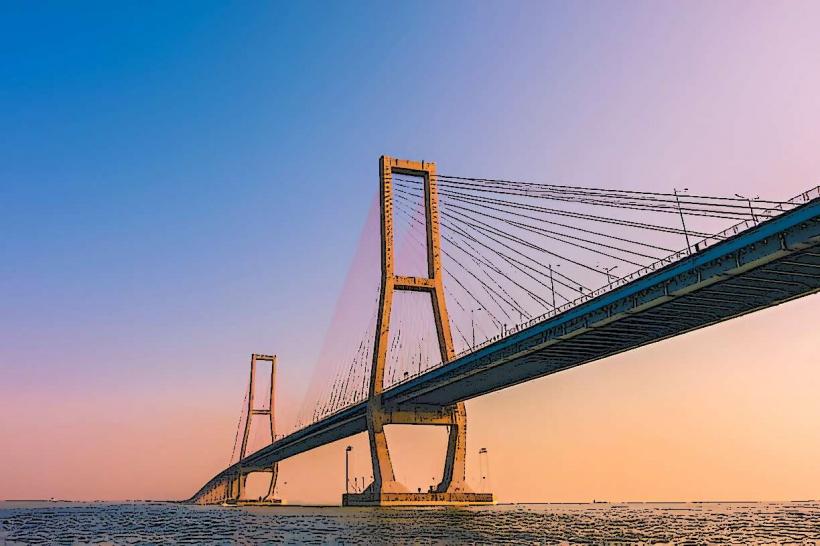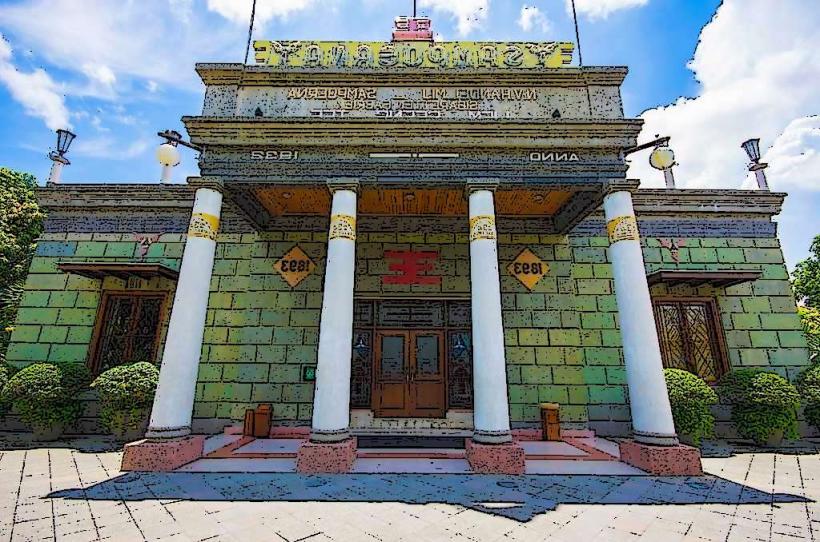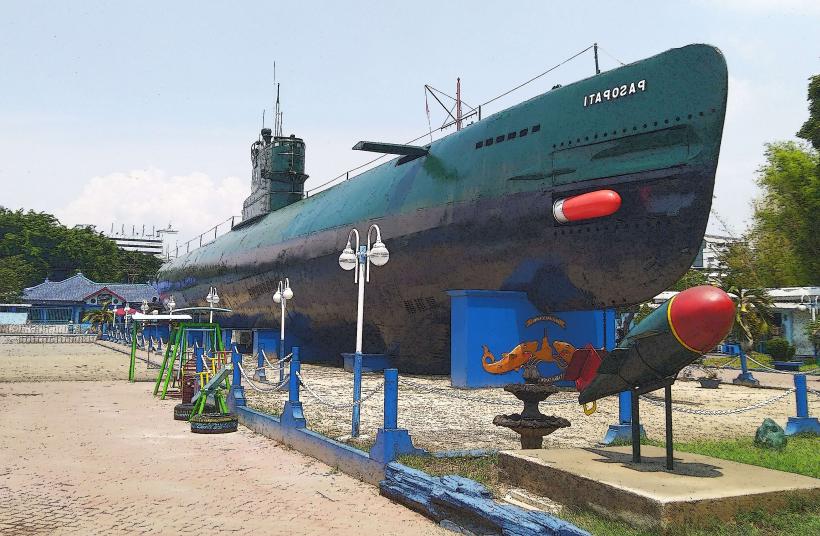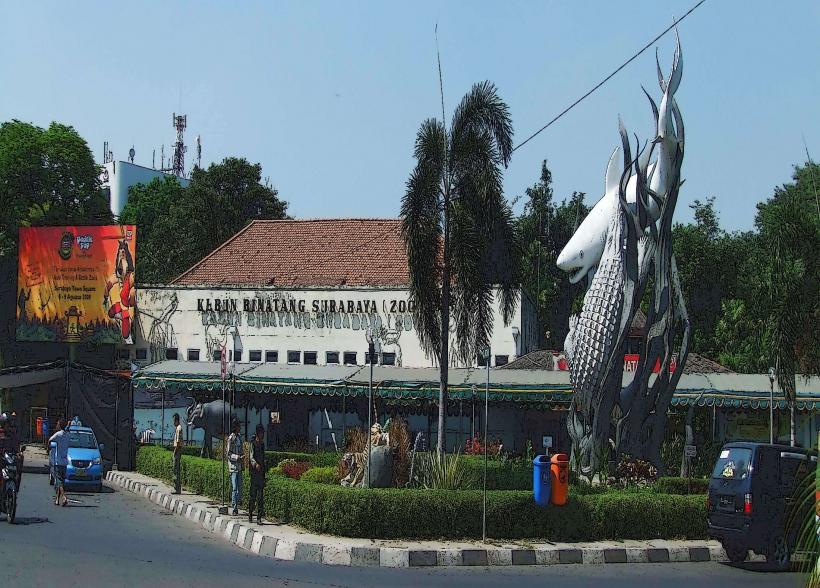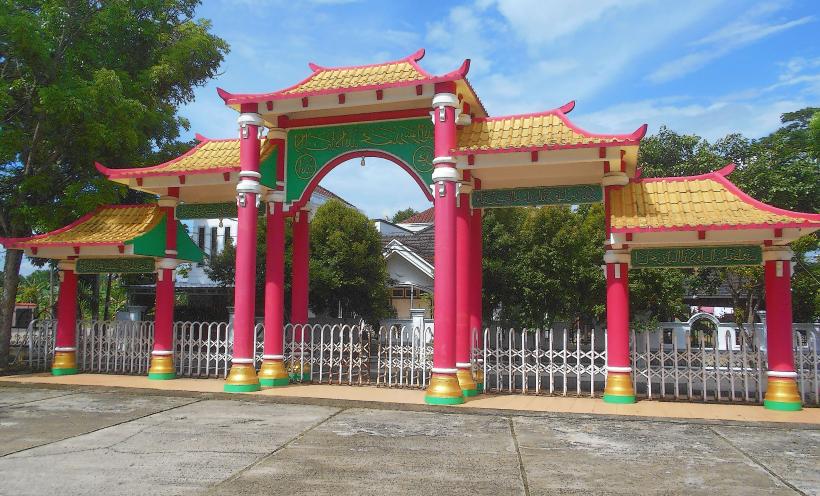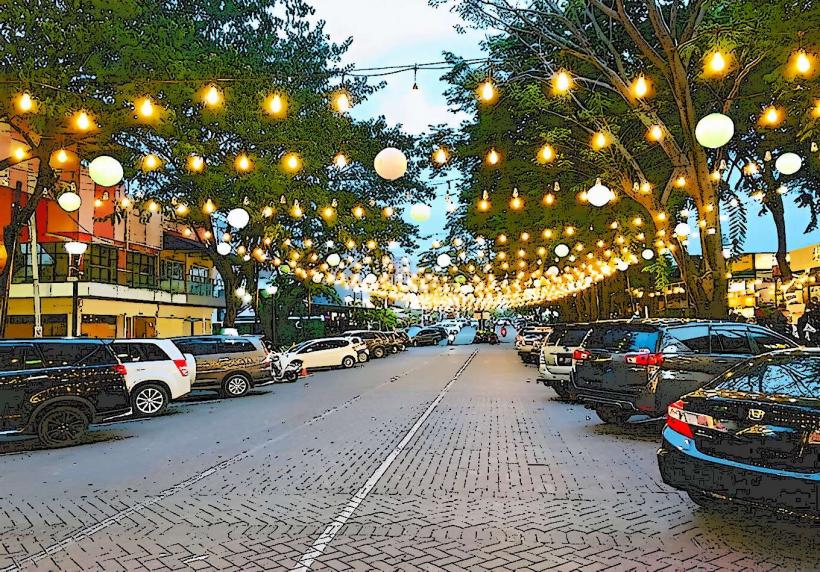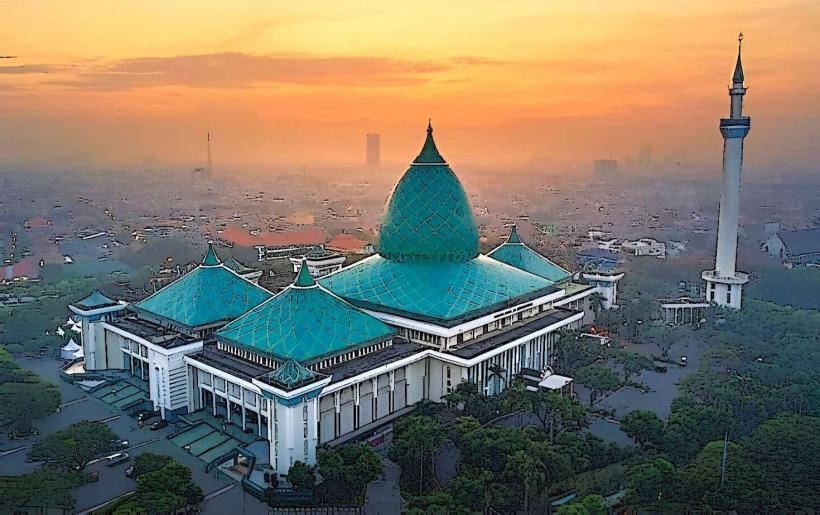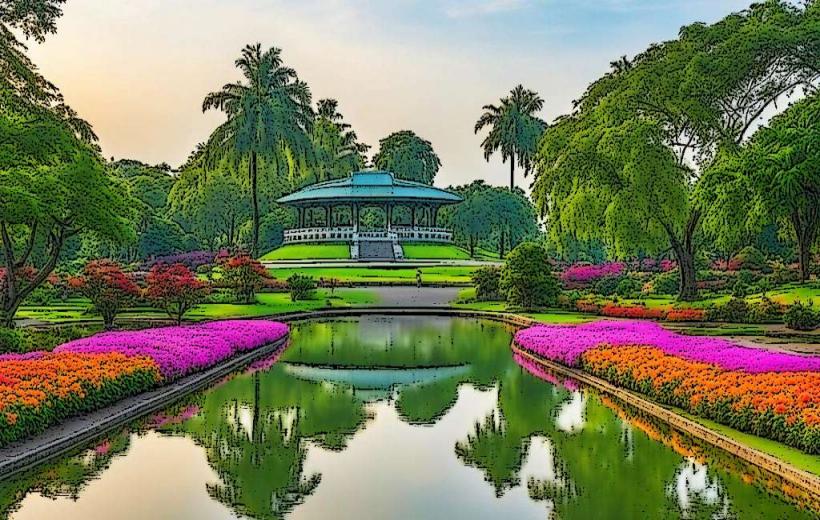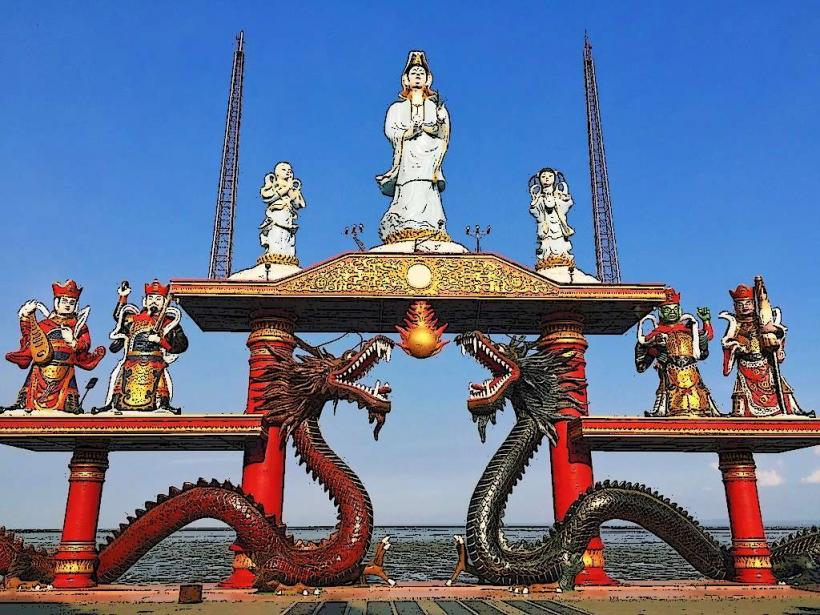Information
Landmark: Tugu PahlawanCity: Surabaya
Country: Indonesia
Continent: Asia
Tugu Pahlawan, Surabaya, Indonesia, Asia
Tugu Pahlawan (Heroes Monument)
The Tugu Pahlawan (Heroes Monument) is an iconic landmark in Surabaya, East Java, Indonesia, symbolizing the city's resilience and its role in Indonesia's struggle for independence. This tall obelisk serves as a tribute to the brave fighters who sacrificed their lives during the Battle of Surabaya in November 1945, one of the most pivotal moments in Indonesia's history.
Overview
- Name: Tugu Pahlawan (Heroes Monument).
- Location: Jalan Pahlawan, Surabaya, East Java, Indonesia.
- Height: 41.15 meters (135 feet).
- Inauguration: November 10, 1952, by President Sukarno.
- Purpose: Commemorates the Indonesian freedom fighters who perished during the Battle of Surabaya.
Historical Background
The Battle of Surabaya took place on November 10, 1945, between Indonesian independence fighters and British-Dutch forces. It was one of the fiercest battles in the Indonesian National Revolution and a turning point in the country’s struggle for independence. November 10 is now celebrated as Hari Pahlawan (Heroes Day) in Indonesia, and Tugu Pahlawan stands as a lasting tribute to the courage and determination of those who fought for freedom.
Architectural Features
1. Obelisk Design
- The monument is shaped like an inverted nail (or "paku terbalik") with 10 sharp sections at its base and 11 curves on its shaft, symbolizing the date of the battle (10th November 1945).
- It is made of white stone, reflecting simplicity and dignity.
2. Surrounding Park
- Tugu Pahlawan is located in a beautifully landscaped park that includes lush greenery, pathways, and spaces for reflection. It provides a serene setting for visitors to pay their respects.
- Several statues and plaques depict scenes from the Battle of Surabaya.
3. Museum 10 November
Beneath the monument lies the Museum 10 November, an underground museum dedicated to the history of the Battle of Surabaya and Indonesia’s independence movement.
Museum 10 November
The museum enhances the monument's significance by offering detailed insights into the events surrounding the Battle of Surabaya.
Exhibits Include:
- Historical Artifacts: Weapons, photographs, uniforms, and other relics from the revolutionary era.
- Audiovisual Displays: Videos and dioramas depicting the battle and the fighters' sacrifices.
- Documents and Letters: Includes proclamations, maps, and letters exchanged during the revolution.
- Heroic Stories: Chronicles of prominent figures like Bung Tomo, a key leader during the battle.
- Interactive Displays: Audio recordings of speeches and songs that inspired the fighters.
Layout:
- The museum features two main exhibition halls and a smaller section with multimedia presentations.
Significance
- Historical: Honors the role of Surabaya as the "City of Heroes" and its contributions to the Indonesian National Revolution.
- Cultural: Serves as a reminder of the values of patriotism and sacrifice for younger generations.
- Educational: Provides detailed historical information, making it an essential destination for students, researchers, and history enthusiasts.
Visiting Information
1. Location
- Situated in the heart of Surabaya on Jalan Pahlawan, near other historical sites.
2. Opening Hours
- Tugu Pahlawan: Open daily, 24 hours.
- Museum 10 November:
- Tuesday to Sunday: 8:00 AM – 4:00 PM.
- Closed on Mondays.
3. Admission
- Tugu Pahlawan: Free entry.
- Museum 10 November: A small entrance fee (typically IDR 5,000–10,000).
4. Accessibility
- Easily accessible by car, taxi, or ride-hailing apps like Grab or Gojek.
- Public buses and angkot (local minibuses) also serve the area.
5. Facilities
- On-site parking.
- Rest areas and benches in the park.
- Information kiosks and guides in the museum.
Nearby Attractions
- House of Sampoerna: A historical museum dedicated to Indonesia's kretek cigarette industry.
- Suramadu Bridge: The longest bridge in Indonesia, connecting Surabaya to Madura Island.
- Ampel Mosque: One of the oldest mosques in Indonesia, showcasing Islamic and Javanese architectural styles.
Why Visit Tugu Pahlawan?
- Historical Significance: Immerse yourself in the story of Indonesia’s fight for independence.
- Architectural Marvel: Admire the imposing obelisk and its symbolic design.
- Educational Value: Gain a deeper understanding of the Battle of Surabaya through the Museum 10 November.
- Peaceful Atmosphere: Enjoy the tranquility of the surrounding park while reflecting on the sacrifices of the past.
Conclusion
The Tugu Pahlawan is more than just a monument-it’s a symbol of Indonesia’s spirit of independence and the sacrifices made to achieve it. Whether you’re a history buff or a casual visitor, this landmark offers a meaningful and inspiring experience that encapsulates the essence of Surabaya as the City of Heroes.

